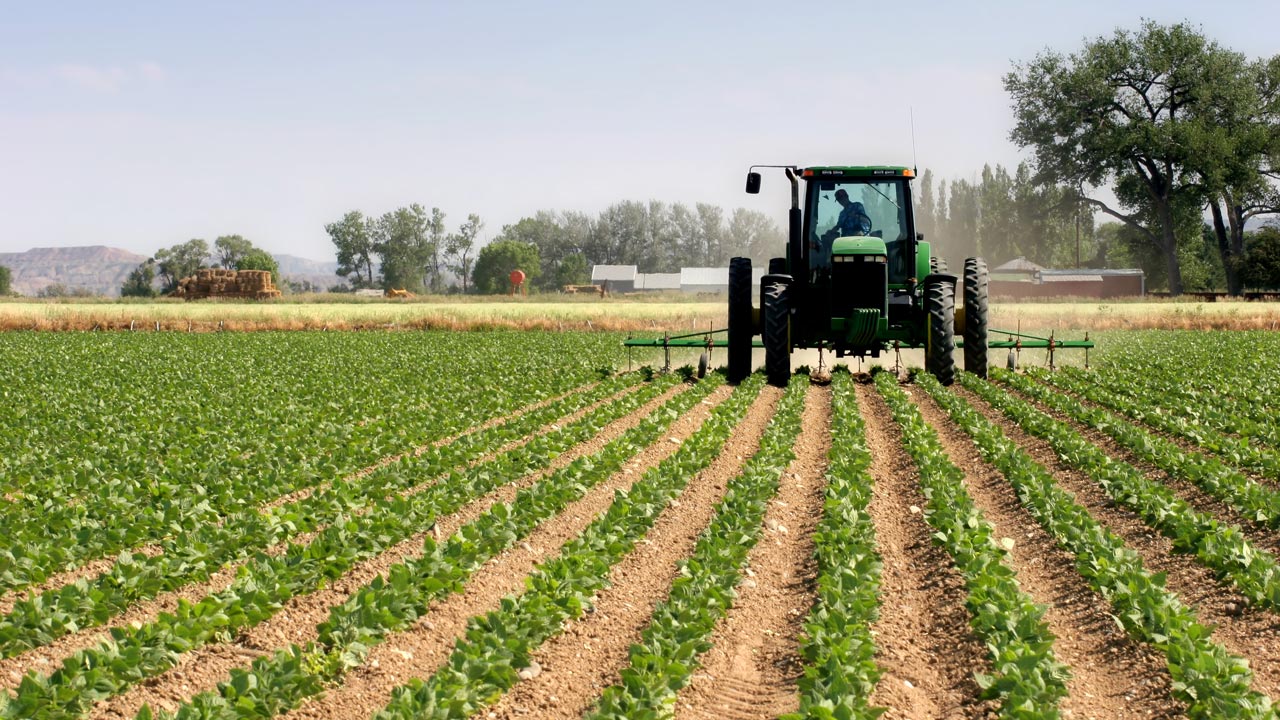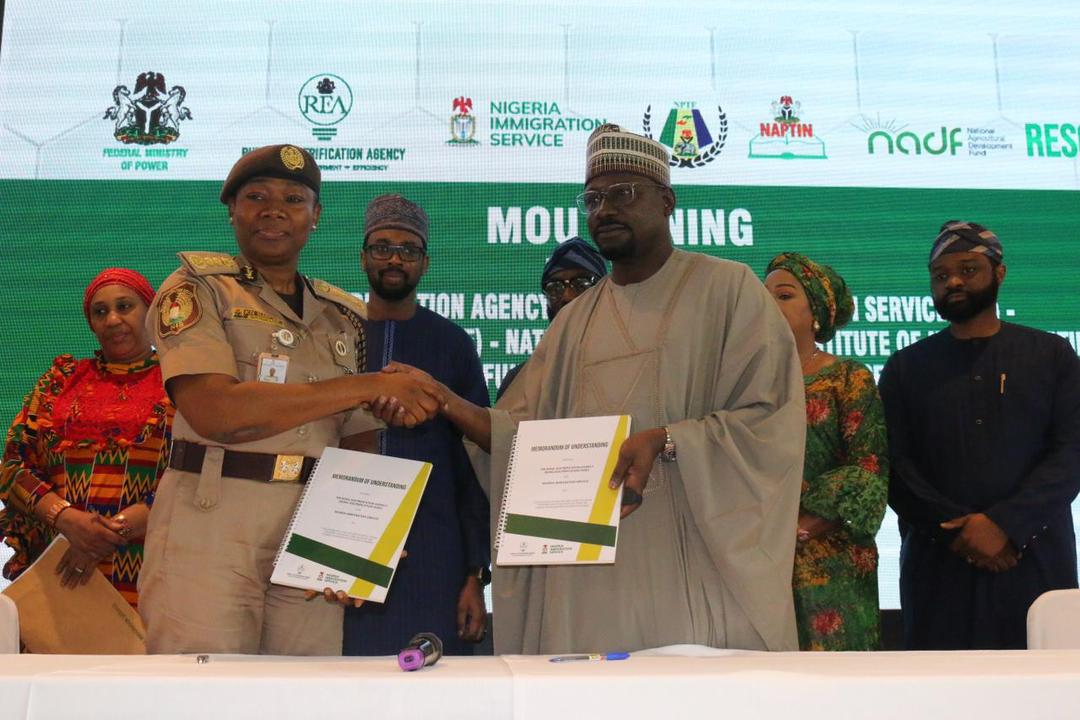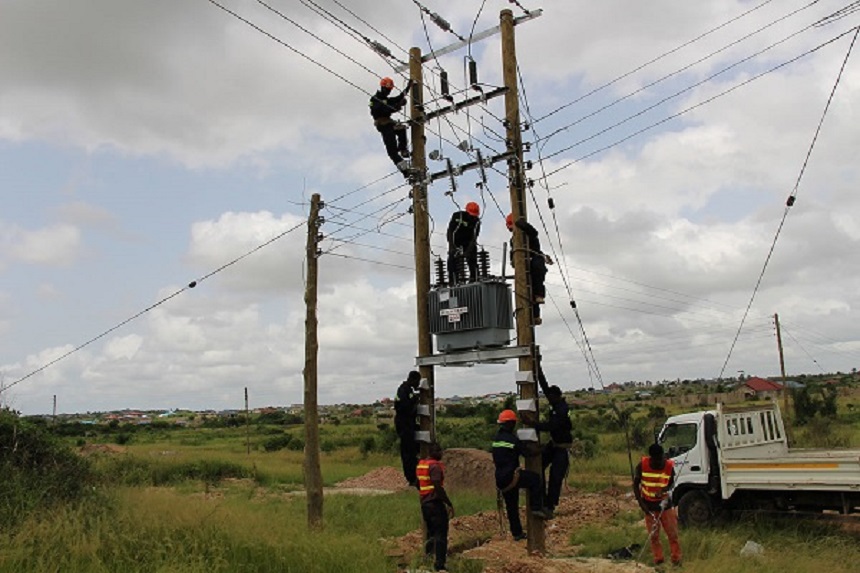Economy
REA, RMI Launch Initiative to Unlock Productivity in Nigeria’s Agric Sector

By Adedapo Adesanya
The Nigerian Rural Electrification Agency (REA) and RMI, an independent nonprofit organisation focused on transforming the global energy system, have launched the Energizing Agriculture Programme (EAP), which aims to boost the country’s GDP, accelerate renewable energy drive, and unlock productivity in the agriculture sector.
The EAP is a three-year initiative with the Global Energy Alliance for People and Planet (GEAPP), with funding from The Rockefeller Foundation, that aims to stimulate the use of mini-grid electricity in productive agricultural uses by focusing on enabling market-led solutions and breaking the silos separating electrification and agricultural development.
Over the next three years, the EAP initiative will foster a pipeline of agriculture-energy projects that demonstrate the impact of collaborative development efforts across the energy and agriculture sectors. Across these activities, the EAP is designed to ensure local ownership of solutions and scaling by partnering widely and sharing insights broadly.
As part of the GEAPP’s broader efforts to bring reliable electricity to 1 billion people by the decade’s end, avert 4 billion tons of greenhouse gases and enable 150 million green jobs that generate inclusive economic growth, the EAP will build on existing agriculture and electrification initiatives in Nigeria and then accelerate the deployment and adoption of the most effective solutions for rural communities across the country.
The programme will achieve this by bringing together teams of local partners to validate commercially led business models and demonstrate agricultural appliances and scale-proven solutions.
Experts estimate that Nigeria’s agricultural sector, which provides nearly one-quarter of the country’s GDP and employs two-thirds of the labour force, has the potential to generate $40 billion in exports. Using electricity to power opportunities like these can drive a virtuous cycle for rural development by increasing incomes and community resilience and improving the financial performance of the mini-grid utility.
Speaking on this, the Minister of State for Power, Mr Goddy Jedy-Agba, said the federal government has been very deliberate about leveraging strategic partnerships for optimum impact in off-grid communities across Nigeria.
“I am confident that the EAP is deliberately designed to open a whole new world of possibilities to farmers and artisans in the agricultural sector.
“As the renewable energy space improves yearly, we have continued to keep a keen eye on the deployment of programs and solutions geared toward socioeconomic impact in unserved and underserved communities across Nigeria. The EAP is one of those programmes.”
Adding his input, Dr Mohammed Mahmoud Abubakar, Nigeria’s Minister of Agriculture and Rural Development, said, “This programme encourages the productive use of energy to deepen our objective of organizing and managing the agricultural sector in Nigeria. Leveraging renewable energy technologies for productive use in off-grid communities greatly helps to strengthen the production capacity of the average Nigerian farmer in rural communities.
“The EAP is in line with our mandate at the Federal Ministry of Agriculture and Rural Development toward strengthening agriculture and rural development across the country.”
“Catalyzing the productive use appliance market is a critical priority on the current REA strategy roadmap, designed to increase economic opportunities in off-grid communities. Beyond providing electricity to the unserved and the underserved, the ultimate goal for the REA is to make sure that the electricity impacts the communities both socially and economically, and agriculture is the chief activity that supports livelihoods in almost all rural communities. That is why we are going beyond powering residential communities to also focus on energizing their agricultural clusters as well,” said Mr Ahmad Salihijo Ahmad, managing director/CEO of REA.
“Addressing the energy deficit challenge in sub-Saharan Africa is fundamental to unlocking agricultural productivity, new income-generating activities, and acceleration of global decarbonization efforts,” said Mr Justin Locke, managing director of RMI’s Global South Programme.
“The EAP’s potential to electrify agricultural loads can catalyze scaling the adoption of decentralized renewable energy systems and spur local community development,” he added.
Supporting demand, jobs and small and medium enterprise growth by increasing productive agricultural use at mini-grid sites is critical to uplifting low-income communities in Nigeria, and the EAP will directly contribute to these efforts by deploying productive use appliances in rural communities and providing business models to scale similar interventions at mini-grid sites throughout Nigeria. Equipment like electric grain mills and cold storage can plug directly into existing agricultural value chains once electricity is available.
“Despite incredible advances in renewable energy technologies, we haven’t seen these innovations spread at the speed and scale needed to reach the communities most in need, especially in the agricultural sector,” said Mr Joseph Nganga, executive director for Africa at the GEAPP.
“The EAP will bring together farmer organizations, private agricultural companies, donors, equipment manufacturers and governments to surface innovations and embed them within existing value chains. If we are successful, some of these solutions will have wide uptake, helping to catalyze more equitable and sustainable economic development,” he said.
Economy
Stronger Taxpayer Confidence, Others Should Determine Tax Reform Success—Tegbe

By Modupe Gbadeyanka
The chairman of the National Tax Policy Implementation Committee (NTPIC), Mr Joseph Tegbe, has tasked the Nigeria Revenue Service (NRS) to measure the success of the new tax laws by higher voluntary compliance rates, lower administrative costs, fewer disputes, faster resolution cycles, and stronger taxpayer confidence.
Speaking at the 2026 Leadership Retreat of the agency, Mr Tegbe said, “Sustainable revenue performance is built on trust and efficiency, not enforcement intensity,” emphasising that the legitimacy and predictability of the system are more critical than punitive measures.
He underscored that the country’s tax reform journey is at a critical juncture where effective implementation will determine long-term fiscal outcomes.
The NTPIC chief stressed that tax policy must serve as an enabler of governance, and should embody simplicity, equity, predictability, and administrability at scale.
These principles, he explained, foster voluntary compliance, reduce operational friction, and strengthen investor confidence. He warned that ad-hoc adjustments or policy drift could undermine reform momentum, unsettle businesses, and deter investment, which thrives on predictable rules rather than shifting announcements. Structured sequencing, clear transition mechanisms, and continuous feedback between policymakers and administrators are therefore critical to sustaining reform credibility.
Mr Tegbe further argued that revenue reform cannot succeed in isolation. Achieving sustainable gains requires a whole-of-government approach, leveraging robust taxpayer identification systems, integrated financial data, efficient dispute resolution, and harmonised coordination across federal and sub-national levels. This approach, he said, reduces leakages, eliminates multiple taxation, and reinforces confidence in the system.
He noted that the passage of four new tax laws marks only the beginning of a broader reform agenda, describing the initiative as a systemic recalibration of Nigeria’s fiscal architecture, rather than a routine policy update.
He further asserted that the true measure of success will be the credibility of implementation, not the design of the laws themselves.
The NRS, he noted, functions as the nation’s “Revenue System Integrator,” with outcomes reflecting the strength of an interconnected ecosystem that encompasses policy clarity, enforcement consistency, digital infrastructure, dispute resolution efficiency, and intergovernmental coordination.
Economy
NUPENG Seeks Clarity on New Oil, Gas Executive Order

By Adedapo Adesanya
The National Union of Natural and Gas Workers (NUPENG) has expressed deep concern over the Executive Order by President Bola Tinubu mandating the Nigerian National Petroleum Company (NNPC) Limited to remit directly to the federation account.
In a statement signed by its president, Mr William Akporeha, over the weekend in Lagos, the union noted that the absence of detailed public engagement had naturally generated tension within the sector and heightened restiveness among workers, who are anxious to know how the new directive may affect their employment, welfare and job security, especially as it affects NNPC and other major operations in the oil and gas sector.
It pointed out that the industry remained the backbone of Nigeria’s economy, contributing significantly to national revenue, foreign exchange earnings, and employment.
The NUPENG president affirmed that any policy shift, particularly one introduced through an Executive Order, has far-reaching consequences for regulatory frameworks, Investment decisions, operational standards, and labour relations within the sector.
According to him, “there is an urgent need for clarity on the scope and objectives of the Executive Order -What precise reforms or adjustments does it introduce? “Its implications for the Petroleum Industry Act -Does the Order amend, interpret, or expand existing provisions under PIA?
“Impact on workers and existing labour agreements-Will it affect job security, conditions of service, Collective Bargaining agreements or ongoing restructuring processes within the industry? “Effects on indigenous participation and local content development -How will it affect Nigerian companies and employment opportunities for citizens?”
He warned that without proper consultation and explanation, misinterpretations of the Executive Order may spread across the industry, potentially destabilising operations and undermining industrial harmony that stakeholders have worked hard to sustain.
“Though our union remains committed to constructive engagement, national development and stability of the oil and gas sector, however, we are duty-bound and constitutionally bound to protect the rights and welfare and job security of our members whose livelihoods depend on a clear, fair and predictable policy framework,” Mr Akporeha further stated.
Economy
Uzoka-Anite Warns Against Inflation Risks from Oil, Gas Earnings Surge

By Adedapo Adesanya
The Minister of State for Finance and chairman of the Federation Account Allocation Committee (FAAC), Mrs Doris Uzoka-Anite, has cautioned that a projected surge in oil and gas revenues following President Bola Tinubu’s latest executive order could trigger inflationary pressures and exchange rate volatility if not carefully managed.
She said that the recent executive order mandating the direct remittance of certain oil sector revenues to the federation account would provide regulatory clarity and significantly strengthen revenues accruing to the federation account, but warned that sudden liquidity injections into the economy may complicate monetary policy coordination with the Central Bank of Nigeria and erode the real value of allocations to federal, state and local governments.
While addressing members of FAAC in Abuja, Mrs Uzoka-Anite commended President Tinubu on the order, describing the development as a structural fiscal correction aimed at restoring constitutional discipline to petroleum revenue management and enhancing distributable income across the three tiers of government.
She said that the revenue outlook was improving due to ongoing structural reforms introduced by the Federal Government.
According to her, the newly implemented tax reform measures are broadening the tax base, improving compliance and enhancing administrative efficiency.
“Also, the executive order signed by Mr President on February 13 is reinforcing revenue discipline in the oil and gas sector and reducing leakages,” she said.
The minister said that the order suspends the 30 per cent allocation to the Frontier Exploration Fund (FEF) and suspends the 30 per cent management fee on oil and gas profit payable to NNPC Limited.
She said that the order also directed that gas flare penalties be paid into the federation account, and mandated full remittance of petroleum revenues without unconstitutional deductions.
Mrs Uzoka-Anite said that the reform marks a shift from a retention-based oil revenue model to a gross remittance, federation-first model.
“The implications for FAAC are very significant; more oil and gas profit will now flow directly into the federation account.
“Gas flare penalties will become distributable revenue, and previously retained management fees will no longer reduce remittable inflows,” she said.
She said that the reforms were expected to result in higher monthly gross inflows into the federation account, and increased allocations to federal, state and local governments.
The minister said that a retrospective audit of the FFF, the Midstream and Downstream Gas Infrastructure, was due, and NNPC management fee deductions could lead to recoveries that may provide a one-off fiscal boost.
She welcomed the improved revenue outlook and cautioned against the risks associated with sudden liquidity injections.
“Experience shows that when revenues rise sharply and are distributed fully and immediately, large liquidity injections can increase inflationary pressures, complicate monetary management and reduce the real purchasing power of allocations,” she said.
She said that excess aggregate demand, exchange rate pressure, asset price distortions and inflationary risks could arise if increased inflows were not carefully managed.
Mrs Uzoka-Anite said that to mitigate such risks, she proposed phased disbursement of one-off recoveries.
She suggested that retrospective recoveries be staggered rather than injected into the economy in bulk, with a portion temporarily warehoused in a stabilisation buffer.
She also recommended strengthening the excess crude and stabilisation buffer mechanism to channel part of incremental inflows into a fiscal stabilisation window.
“This could offset revenue shortfalls in weaker months and reduce procyclicality in spending.
According to her, enhanced coordination with the CBN would be pursued to align fiscal injections with liquidity management tools and support open market operations where necessary.
Mrs Uzoka-Anite urged states and federal Ministries, Departments and Agencies (MDAs) to prioritise capital expenditure over recurrent expenditure.
She called for investment in infrastructure, agriculture, energy and other productive sectors, and avoid unsustainable wage or consumption spikes.
“Productive spending expands supply capacity and mitigates inflation,” she said.
She also announced plans to introduce monthly revenue transparency dashboards, production-to-remittance reconciliation reporting, and clear reporting of incremental inflows arising from tax reforms and the executive order.
The junior finance minister said that the reforms presented an opportunity to deepen fiscal federalism, enhance distributable revenue, restore constitutional clarity and strengthen trust among tiers of government.
She also advised that increased revenue must not translate into fiscal complacency.
“We must resist the temptation to treat incremental inflows as permanent windfalls. We should reduce debt burdens, clear arrears responsibly, build buffers and invest in growth-enhancing sectors,” she said.
-

 Feature/OPED6 years ago
Feature/OPED6 years agoDavos was Different this year
-
Travel/Tourism10 years ago
Lagos Seals Western Lodge Hotel In Ikorodu
-

 Showbiz3 years ago
Showbiz3 years agoEstranged Lover Releases Videos of Empress Njamah Bathing
-

 Banking8 years ago
Banking8 years agoSort Codes of GTBank Branches in Nigeria
-

 Economy3 years ago
Economy3 years agoSubsidy Removal: CNG at N130 Per Litre Cheaper Than Petrol—IPMAN
-

 Banking3 years ago
Banking3 years agoSort Codes of UBA Branches in Nigeria
-

 Banking3 years ago
Banking3 years agoFirst Bank Announces Planned Downtime
-

 Sports3 years ago
Sports3 years agoHighest Paid Nigerian Footballer – How Much Do Nigerian Footballers Earn


















